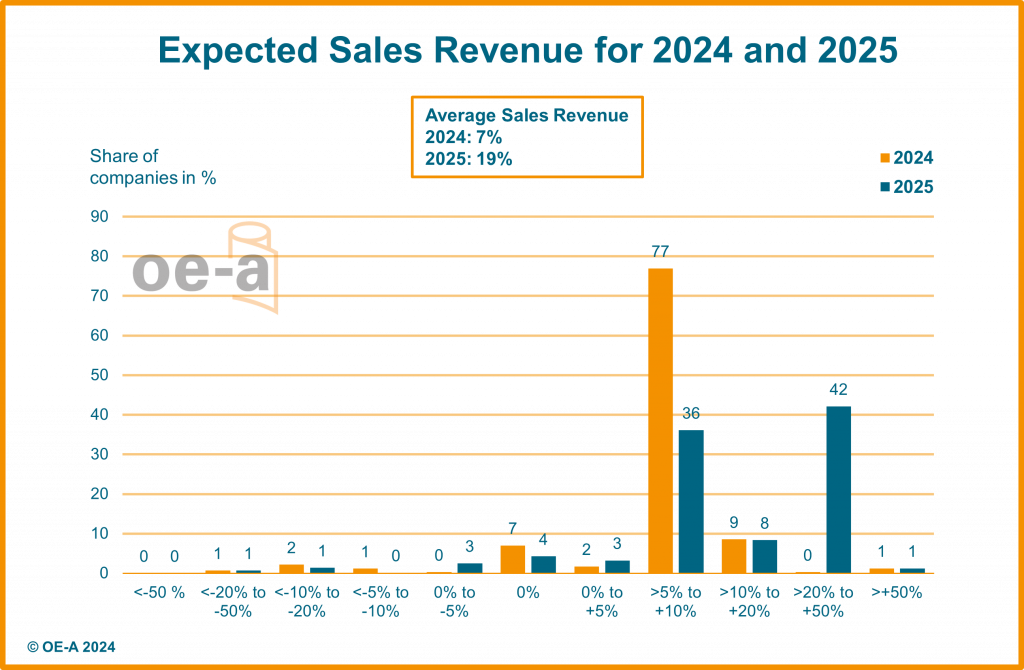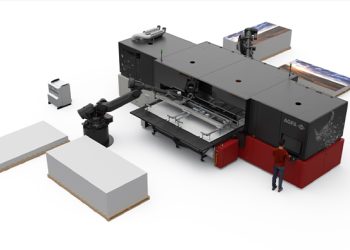“While the printed electronics industry faces near-term challenges due to global economic uncertainties and a cooling automotive sector, we remain optimistic about the future.
The reduced growth forecast for 2024 reflects a cautious wait-and-see attitude, but with strong signals for a rebound in 2025,” said Dr. Klaus Hecker, OE-A Managing Director, commenting on the results of the latest business climate survey. The biannual survey is conducted by the Organic and Printed Electronics Association (OE-A), a working group within VDMA.
The survey predicts revenue growth of +7 percent for 2024, a significant decrease from the previous survey (March 2024: 13 percent). However, optimism remains high for 2025, with a forecast growth of 19 percent. “It is encouraging to see that companies are prioritizing innovation, as evidenced by the increased focus on R&D and employment growth. We believe that by focusing on key sectors such as consumer electronics, automotive and medical, the industry is well positioned for sustainable long-term development,” emphasizes Klaus Hecker.
OE-A predicts 19 percent sales growth in 2025 compared to 2024
The revenue forecast of +19 percent for 2025 shows a positive outlook for the printed electronics industry in the future. However, for 2024, the growth rates for both revenue forecast and order intake are significantly reduced compared to the results of the March 2024 survey.
The industry is facing headwinds from global economic and geopolitical hurdles, as well as a slowdown in the automotive sector, especially EV, resulting in reduced and delayed orders. Only 6 percent of companies plan to increase production investment over the next six months (down from 53 percent in March 2024), although a majority (57 percent) will maintain investment levels.

After the clouds bright prospects for 2025
As the printed electronics industry navigates these turbulent waters, the signs for 2025 point to a promising horizon of opportunities for growth and progress. Encouraging signs are emerging in both employment and research and development (R&D). The latest results indicate a significant shift in the employment landscape, with 46 percent of companies planning to increase their workforce over the next six months. This is a turnaround from March 2024, when only 7 percent of firms expressed intentions to hire more staff. In addition, there is a notable increase in R&D activity, with 46 percent indicating plans to expand their R&D efforts.
“This commitment to innovation underscores the industry’s determination to remain competitive and adapt to changing market conditions. By prioritizing R&D, companies are positioning themselves to take advantage of emerging trends and opportunities, ensuring long-term growth. This innovative strength will be on display at electronica next month and at LOPEC 2025,” concludes Klaus Hecker.














